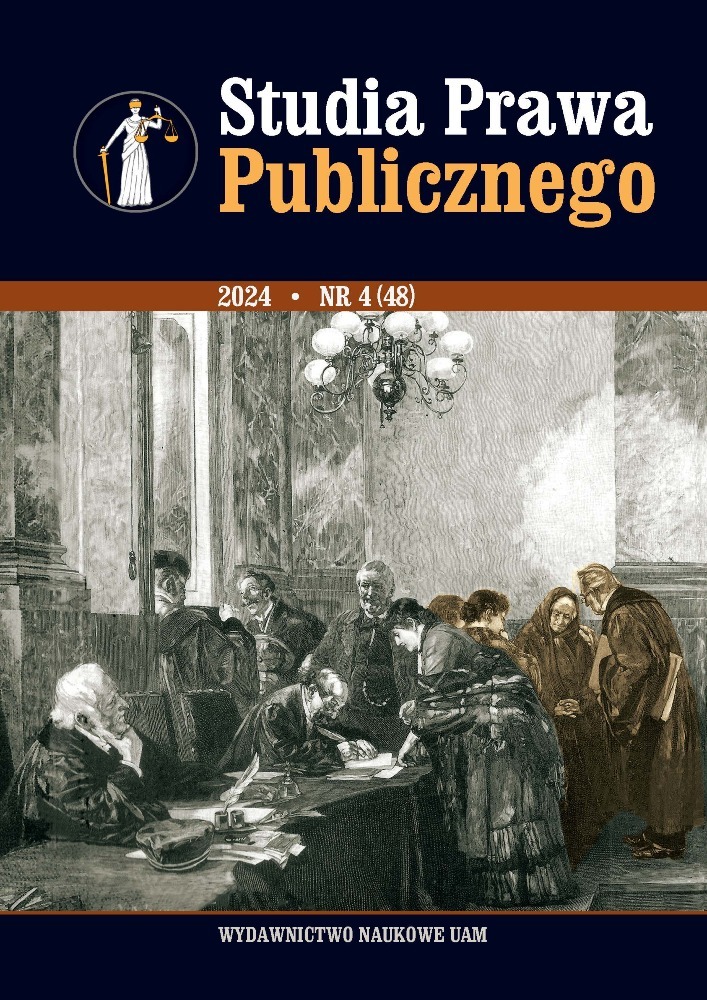Abstract
The article analyzes the impact of public procurement policy on economic development, innovation, and the efficiency of public spending. Procurement policy, as a key element of public financial management, has the potential to stimulate economic growth through preferential treatment of local suppliers and the promotion of innovative solutions. The article examines how effective procurement policy can lead to budgetary savings and increased transparency in tendering processes, which, in turn, fosters public trust. The role of public procurement policy in supporting economic development, innovation, and sustainable growth through preferences for local suppliers and transparency in procurement processes is also highlighted. An effective procurement policy contributes to efficient public spending and strengthens public confidence. The state’s procurement policy plays a key instrumental role in shaping the economy, influencing the achievement of public objectives and the efficient allocation of resources. By employing appropriately designed tools, the state can support sustainable development, innovation, and market competitiveness. The article particularly emphasizes how the instrumental role of state policy relates to its function as a tool for achieving specific public, economic, social or environmental goals. Special attention is given to the state’s procurement policy, which plays a crucial role in achieving established priorities. As an instrumental tool, public procurement policy enables the realization of various strategic objectives, provided it is properly designed and implemented. The effectiveness of this policy depends on its alignment with social needs and the assurance of fairness and transparency in procurement processes. The analysis underscores the critical importance of procurement policy in the context of future economic trends and global challenges.
References
Jann W., Wegrich, K., Theories of the Policy Cycle, London 2007. DOI: https://doi.org/10.1201/9781420017007.pt2
Koncepcja polityki zakupowej (streszczenie), Związek Pracodawców Gospodarki Odpadami, https://www.zpgo.pl/images/Streszczenie_polityki_zakupowej_panstwa.pdf (dostęp: 8 IX 2020).
Kulesza M., Sześciło D., Polityka administracyjna i zarządzanie publiczne, Warszawa 2013.
Kuźma K., Hartung W., Instrument do prowadzenia polityki zakupowej państwa, „Gazeta Prawna” z 6 VIII 2019, nr 151.
Mazur S., Historia administracji publicznej, w: Administracja publiczna, pod red. J. Hausnera, Warszawa 2005, s. 41–80.
Mazzucato M., Przedsiębiorcze państwo. Obalić mit o relacji sektora publicznego i prywatnego, tłum. J. Bednarek, Poznań 2016.
Nauka administracji, pod red. B. Kudryckiej, B. Guy Petersa, P.J. Suwaja, Warszawa 2009.
Rudolf W., Rozwój zarządzania publicznego, „Acta Universitatis Lodziensis. Folia Oeconomica” 2011, nr 261, s. 407–418.
Studia z zarządzania publicznego. Materiały seminarium naukowego nt. „Od idealnej biurokracji do współczesnego zarządzania publicznego”, zorganizowanego przez Katedrę Gospodarki i Administracji Publicznej Akademii Ekonomicznej w Krakowie, t. 1, pod red. J. Hausnera, Kraków 2001.
Wprowadzenie do nauk o polityce publicznej, pod red. M. Zawickiego, Warszawa 2013. Zybała A., Polityki publiczne. Doświadczenia w tworzeniu i wykonywaniu programów publicznych w Polsce i w innych krajach. Jak działa państwo, gdy zamierza/chce/musi rozwiązać zbiorowe problemy swoich obywateli?, Warszawa 2012.
License
Copyright (c) 2024 Agnieszka Marek-Bielawska

This work is licensed under a Creative Commons Attribution-NoDerivatives 4.0 International License.

